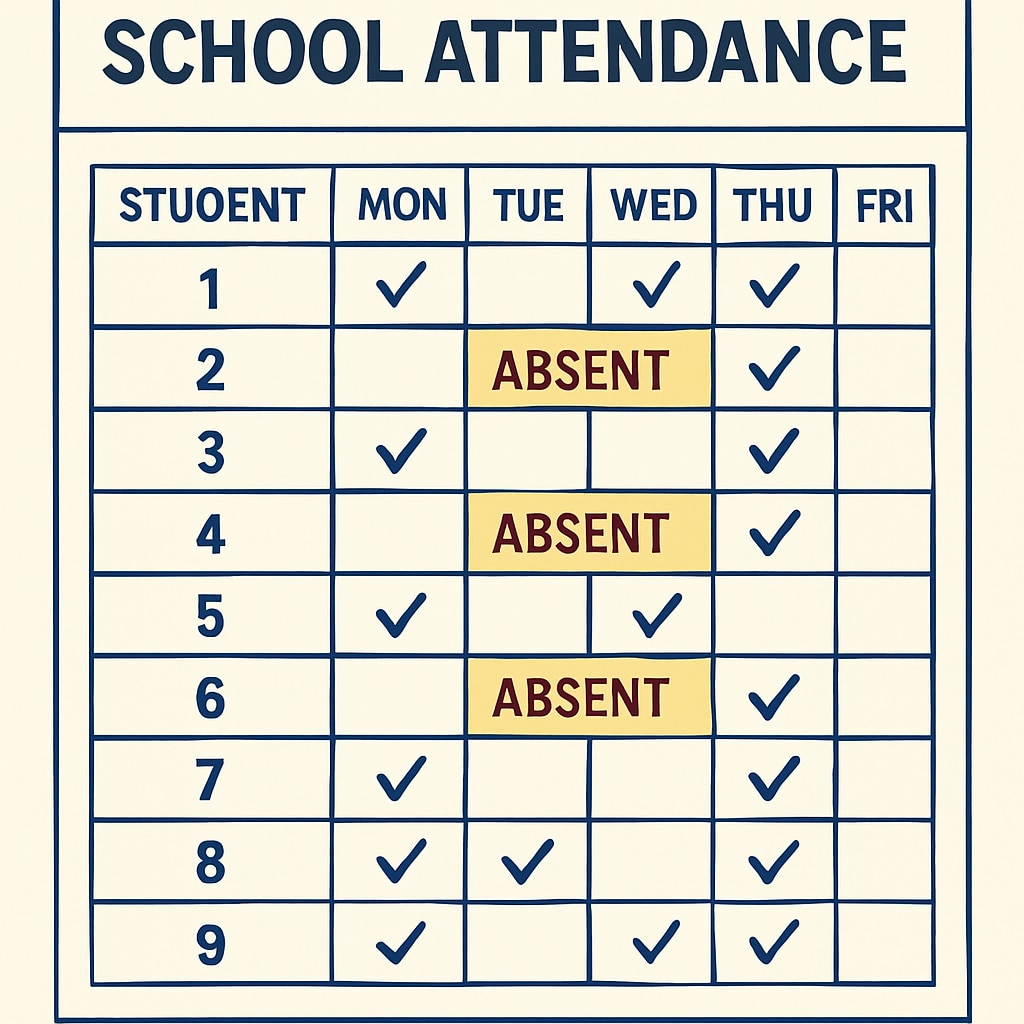Strict attendance policies, truancy handling, and the involvement of religious organizations in K12 schools have sparked significant debate among educators, parents, and policymakers. While school attendance is undeniably crucial for academic success, overly rigid rules—such as policies that define 72-hour absences as truancy—can lead to undue interference in students’ lives. This article explores the potential downsides of such policies and questions the appropriateness of involving religious organizations in disciplinary actions.
Are Attendance Policies Becoming Overly Intrusive?
Attendance policies in schools are designed to ensure that students spend sufficient time in the classroom to achieve their learning objectives. However, when these policies become excessively strict, they risk alienating families and imposing undue burdens. For example, the notion that missing 72 hours—whether due to illness, family emergencies, or unforeseen circumstances—automatically classifies a student as truant places unnecessary pressure on both students and parents.
Such policies fail to account for the complexity of individual circumstances. Families may have legitimate reasons for extended absences, such as cultural or religious obligations, medical conditions, or unique caregiving roles. Instead of fostering trust and collaboration between schools and families, overly rigid attendance systems may create adversarial relationships. A more flexible approach could better accommodate the diverse needs of students and their families.

The Role of Religious Organizations in School Discipline
In some regions, schools have partnered with religious organizations to manage disciplinary issues, including attendance-related infractions. While the intention may be to provide moral guidance and community support, this practice raises questions about the separation of church and state. Introducing religious entities into public education settings can be problematic, especially in multicultural communities where students come from diverse belief systems.
Relying on religious organizations for disciplinary management may inadvertently favor certain belief systems, potentially alienating students and families who do not share those values. Furthermore, it could undermine the neutrality of public education institutions, which are meant to serve all students equally, regardless of their religious backgrounds. Schools should consider alternative solutions that uphold secular values while fostering inclusive environments.

Striking a Balance: Recommendations for Improvement
To address the issues surrounding attendance policies and disciplinary measures, schools should strive to implement systems that balance accountability with empathy. Here are some recommendations:
- Flexible Attendance Policies: Schools should allow for exceptions in attendance rules, considering legitimate reasons for absences such as health, cultural, or family emergencies.
- Transparent Communication: Educators and administrators must communicate attendance policies clearly to families while encouraging dialogue about individual needs.
- Secular Disciplinary Measures: Schools should avoid involving religious organizations in discipline management, opting instead for neutral support systems like counselors or peer mediation programs.
- Increased Family Collaboration: Educational institutions should partner with parents to identify solutions that support both academic success and family autonomy.
By adopting these measures, schools can create more inclusive and balanced environments that respect the diverse realities faced by students and their families.
Conclusion: Rethinking Attendance Policies and Disciplinary Practices
The current approach to attendance policies and disciplinary measures in some K12 schools is facing justified scrutiny. Labeling 72-hour absences as truancy and involving religious organizations in disciplinary actions may unintentionally overreach into personal and family matters. Educational institutions must pursue balanced policies that respect family autonomy, uphold secular values, and prioritize the well-being of students. As schools navigate these challenges, fostering collaboration between educators, families, and communities will be key to building systems that truly support the diverse needs of all learners.
Readability guidance: Short paragraphs and lists enhance readability. Overuse of passive voice is avoided, and transitions like “however,” “in addition,” and “as a result” are used throughout to improve flow.


